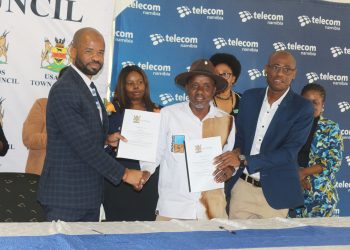
The Ministry of Information and Communication Technology says implementation of the fifth generation (5G) Strategy has commenced and the drafting of regulations on e-signature and accreditation is underway.
“The Data Protection Bill has been finalised and submitted to the Cabinet Committee on Legislation (CCL) for discussion and determination of the next course of action. The Ministry awaits CCL’s communication of the date for the bill to be discussed,†said Information and Communication Technology Minister Emma Theofelus.
The developments follow the government’s approval of the deployment of 5G networks in 2022.
Subsequently, the Communications Regulatory Authority of Namibia (CRAN) granted 10-year 5G licences to the Mobile Telecommunications Company (MTC), Telecom Namibia and Loc8 Mobile in October 2023.
These licences permit the deployment of 5G services across designated frequency bands.
In March 2024, MTC in collaboration with Huawei launched the first 5G mobile network trial in March 2024, which was aimed at demonstrating the opportunities 5G can present to a digitally led economy.
Telecom Namibia has outlined plans to commercially deploy 5G services by 2026. As part of its strategy, the company is expanding its network infrastructure, with a target of installing 500 towers over five years to deliver faster speed, lower latency and enhanced capacity.
TN plans to start 5G testing this year with Chinese vendor Huawei, with whom it signed a N$5.3-million agreement to deliver a fixed-mobile convergence core network.
CRAN highlighted that its 2025-2027 Spectrum Assignment Strategy aims to facilitate the deployment of advanced technologies such as 5G, the Internet of Things and Artificial Intelligence.
The core priorities of the strategy are set to foster innovation, ensure equitable access, promote regulatory adaptability and advance environmental sustainability.
As part of the strategy, CRAN plans to review spectrum fee regulations in 2026 which will include the introduction of new fees for mobile services spectrum bands, as identified during the 2023 World Radiocommunication Conference.
These updates are intended to ensure financial sustainability while keeping pace with global technological advancements.
The 5G is expected to provide higher data speeds and improved network reliability, facilitating better internet access for individuals and businesses.
It is anticipated to drive innovation across various sectors, including healthcare, education and transportation, contributing to the nation’s economic development. With reduced latency and increased capacity.











